第38章 XVIII MY WORKSHOP AND OTHERS(1)
The women-folk are few up there, For 't were not fair, you know, That they our heavenly bliss should share Who vex us here below!
The few are those who have been kind To husbands such as we:
They knew our fads and didn't mind--Says Dibdin's ghost to me.
It has never been explained to my satisfaction why women, as a class, are the enemies of books, and are particularly hostile to bibliomania. The exceptions met with now and then simply prove the rule. Judge Methuen declares that bibliophobia is but one phase of jealousy; that one's wife hates one's books because she fears that her husband is in love, or is going to be in love, with those companions of his student hours. If, instead of being folios, quartos, octavos, and the like, the Judge's books were buxom, blithe maidens, his wife could hardly be more jealous of the Judge's attentions to them than she is under existing circumstances. On one occasion, having found the Judge on two successive afternoons sitting alone in the library with Pliny in his lap, this spirited lady snatched the insidious volume from her husband's embraces and locked it up in one of the kitchen pantries; nor did she release the object of her displeasure until the Judge had promised solemnly to be more circumspect in the future, and had further mollified his wife's anger by bringing home a new silk dress and a bonnet of exceptional loveliness.
Other instances of a similar character have demonstrated that Mrs. Methuen regards with implacable antipathy the volumes upon which my learned and ingenious friend would fain lavish the superabundance of his affection. Many years ago the Judge was compelled to resort to every kind of artifice in order to sneak new books into his house, and had he not been imbued with the true afflatus of bibliomania he would long ago have broken down under the heartless tyranny of his vindictive spouse.
When I look around me and survey the persecution to which book-lovers are subjected by their wives, I thank the goddess Fortune that she has cast my lot among the celibates; indeed, it is still one of the few serious questions I have not yet solved, viz.: whether a man can at the same time be true to a wife and to bibliomania. Both are exacting mistresses, and neither will tolerate a rival.
Dr. O'Rell has a theory that the trouble with most wives is that they are not caught young enough; he quotes Dr. Johnson's sage remark to the effect that ``much can be made of a Scotchman if caught young,'' and he asserts that this is equally true of woman. Mrs. O'Rell was a mere girl when she wedded with the doctor, and the result of thirty years' experience and training is that this model woman sympathizes with her excellent husband's tastes, and actually has a feeling of contempt for other wives who have never heard of Father Prout and Kit North, and who object to their husbands' smoking in bed.
I recall with what enthusiasm I once heard this superior creature commend the doctor for having accepted in lieu of a fee a set of Calvin's ``Institutes,'' with copious notes, in twelve octavo volumes, and a portfolio of colored fox-hunting prints. My admiration for this model wife could find expression in no other way; I jumped from my chair, seized her in my arms, and imprinted upon her brow a fervent but respectful kiss.
It would be hard to imagine a prettier picture than that presented to my vision as I looked in from the porch of the doctor's residence upon the doctor's family gathered together in the library after dinner. The doctor himself, snuggled down in a vast easy-chair, was dividing his attention between a brier pipe and the odes of Propertius; his wife, beside him in her rocker, smiled and smiled again over the quaint humor of Mrs. Gaskell's ``Cranford''; upon yonder settee, Francis Mahony Methuen, the oldest son, was deep in the perusal of Wilson's ``Tales of the Border''; his brother, Russell Lowell, was equally absorbed in the pathetic tale of ``The Man without a Country''; Letitia Landon Methuen, the daughter, was quietly sobbing over the tragedy of ``Evangeline''; in his high chair sat the chubby baby boy, Beranger Methuen, crowing gleefully over an illustrated copy of that grand old classic, ``Poems for Infant Minds by Two Young Persons.''
For several moments I stood spellbound, regarding with ineffable rapture this inspiring spectacle. ``How manifold are thy blessings, O Bibliomania,'' thought I, ``and how graciously they are distributed in this joyous circle, wherein it is permitted to see not only the maturer members, but, alas, the youth and even the babes and sucklings drinking freely and gratefully at the fountain-head of thy delights!''
Dr. O'Rell's library is one of the most charming apartments Iknow of. It looks out upon every variety of scenery, for Dr.
O'Rell has had constructed at considerable expense a light iron framework from which are suspended at different times cunningly painted canvases representing landscapes and marines corresponding to the most whimsical fancy.
In the dead of winter, the doctor often has a desire to look out upon a cheery landscape; thereupon, by a simple manipulation of a keyboard, there is unrolled a panorama of velvety hillsides and flowery meads, of grazing sheep, and of piping rustics; so natural is the spectacle that one can almost hear the music of the reeds, and fancy himself in Arcadia. If in midsummer the heat is oppressive and life seems burthensome, forthwith another canvas is outspread, and the glories of the Alps appear, or a stretch of blue sea, or a corner of a primeval forest.